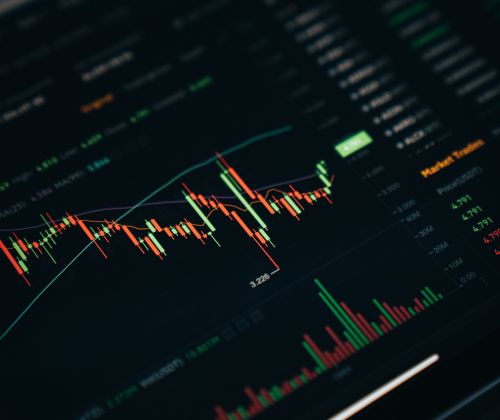
Market Update
11.12.2023
What happened last week?
Europe
- The European Union flexed some regulatory muscle, announcing extensive plans to regulate AI.
- Major European stock indexes breached – or got within a whisker of breaching – new all-time records.
US
- Tech titans Meta and IBM formed an AI alliance to rival trend leader OpenAI. And this 50-strong gang of tech firms and leading institutions says it will put the safe development of AI above all else.
- Key employment data dropped and there was plenty to unpack, with scores for both the soft-landing crowd and the recessionistas.
Asia
- Chinese heavyweight Huawei showed off its AI plume in a bid to prove it can be a real rival to American AI royalty Nvidia.
- In a “kick ’em while they’re down” sort of move, ratings agency Moody’s took China’s debt down a notch.
What does this mean?
AI has the potential to save the world, destroy it, and everything in between, and at the centre of the ongoing debate is just how fast the tech should be developed. We don’t know the finer details of the recent turmoil over at OpenAI, but there’s speculation that the whole thing sparked because of a disagreement about this very thing. Now, OpenAI CEO Sam Altman and Microsoft probably have the best of intentions, but it’s logical to think that the fewer number of people involved, the bigger the risk of an epic screw-up.
So, for the tin-foil-hat-curious among us – those who are more than a tad nervous about the technology – it might be a relief to see the cavalry riding in. No one knows what the future will bring, but somehow having a lot more people at the table – rather than a single all-powerful outright leader – tends to feel better. The worrywart-inclined might’ve also been pleased to see the European Commission come forward last week with what it’s billing as “the most extensive plans to regulate AI in the Western world”.
Europe’s regulators often see themselves as the protector of the people against evil corporations so it’s no surprise to see the commission wade in. The drafted rules seem to be aimed at transparency, first and foremost, with AI developers required to report any issues that crop up. That’s probably not enough to stop evil robots from destroying humanity if they so choose, but, hey, it’s a start.
Away from AI – Europe’s tech sector is teeny-tiny compared to the US, after all – stock markets across the block are worth keeping an eye on.
The fact those indexes look so perky even without an AI boost is probably a very positive thing because it means that the positive fundamentals are broad-based. The German DAX, for example, hit a new all-time high last week. And it counts only two technology stocks in its top ten and overall its tech weighting is about half that of the S&P 500. But it’s not just Germany: Italian stocks are at 15-year highs and the broader, regional STOXX Europe 600 index is within arm’s reach of the same record
Elsewhere, it’s been a year to forget for China. What was billed as the comeback year after lockdowns ended, China’s roar turned out to be more of a whimper. The economy has undershot expectations, and its property sector seems to be hanging on by a thread. And now, rating agency Moody’s has come along with a big tub of salt to rub into this wound, dropping the country’s credit rating by a notch. And though Moody’s spent the week ringing all its alarm bells about the country’s growing debt pile, it didn’t exactly rattle the market. That’s mostly because investors are already one step ahead of the ole Mood, and aware of China’s debt problems.
But at least China has Huawei, right? Tired of being pushed around by Western governments, the firm is trying to position itself as a genuine rival to Nvidia when it comes to AI-powering semiconductors. And it could be a smart ploy. With restrictions tightening all the time on US firms who want to sell AI gear to China, someone’s got to step up and fill all that Chinese demand. So, it might as well be one of China’s own.
THIS WEEK’S FOCUS: THE US VS EUROPE
What a year it’s been for US stocks, and not just because the major indexes have posted impressive gains (so far, at least). See, the impressive thing about those gains is that they’ve happened against all odds. I mean, almost no one expected the S&P 500 to grow profit this year, and yet that shock performance drove most of the stock market’s gains. Now, there’s plenty to be optimistic about here, for sure, but there’s still one worry at the back of investors’ minds and it’s enough to keep even the most raging of US bulls from tearing into the buy orders. And that’s debt.

US government debt stands at an imposing $33 trillion, or 120% of the economy. That’s a dangerous mountain and it’s got some big-name investors and CEOs worried that a tipping point – the point at which the debt grows too high to repay – might be near. That’s troublesome, but what’s even more worrying is that the US government doesn’t appear to be in a hurry to stop its spending, with fiscal deficits (i.e. spending above tax revenues) projected as far as the eye can see.
So, maybe this is where Europe makes its grand entrance. At 80% or so, government debt-to-GDP in the euro bloc isn’t exactly clean as a whistle, but it’s a heck of a lot tidier than in the US. Germany, the block’s biggest economy, has a debt pile that’s a “mere” 65% of its economy. That’s enviably low. And there’s one other metric where Europe scores better – inflation. Price rises in the region are cooling faster than in the US, which just might allow the European Central Bank (ECB) to start cutting rates much sooner than expected. Wrap all that together and you can see why investors are looking at European stocks in a whole new flattering light.

The Week Ahead
- Monday: Earnings: Oracle
- Tuesday: UK labour market report (November), US inflation (November).
- Wednesday: Federal Reserve rate announcement, China foreign direct investment (November), UK monthly GDP (October), Eurozone industrial production (October). Earnings: Adobe.
- Thursday: ECB interest rate announcement, BoE interest rate announcement, US retail sales (November). Earnings: Costco.
- Friday: China retail sales and industrial production (November), eurozone, US, UK, and Japan PMIs (December).
This document is provided to you for your information and discussion purposes only. It is not a solicitation for business or an offer to buy or sell any security or other financial instrument. Any information including facts, opinions, or quotations, may be condensed or summarised and are expressed as of the date of writing. The information may change without notice and Trusted Novus Bank (“TNB”) is under no obligation to ensure that such updates are brought to your attention. Past performance is not a guide to future performance.
This document has been prepared by TNB from sources TNB believes to be reliable but TNB does not guarantee its accuracy or completeness and does not accept liability for any loss arising from its use. TNB reserves the right to remedy any errors that may be present in this document.
Trusted Novus is registered in Gibraltar under number 3207. Its registered address and principal place of business is: Trusted Novus Bank Limited, 76 Main Street, Gibraltar GX11 1AA. It is regulated by the Gibraltar Financial Services Commission (Permission Number 3207) to provide Banking and Investment Services. TNB is a member of the Gibraltar Deposit Guarantee Board (www.gdgb.gi) and the Gibraltar Investor Compensation Scheme (www.gics.gi).